Uncategorized
-
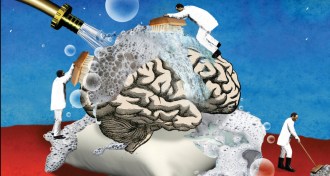 Health & Medicine
Health & MedicineThe brain may clean out Alzheimer’s plaques during sleep
Sleep deprivation may speed up development of Alzheimer’s disease.
By Laura Beil -
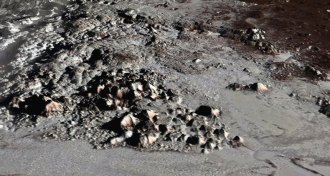 Planetary Science
Planetary ScienceFirst global maps of Pluto and Charon show the worlds’ highs and lows
New charts of Pluto and its moon Charon, compiled using New Horizons’ data, reveal high peaks, deep depressions and strange ridges.
-
 Neuroscience
NeurosciencePregnancy depression is on the rise, a survey suggests
Women today may be at greater risk of depression during pregnancy than previous generations.
-
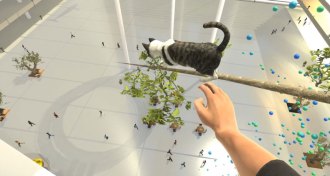 Health & Medicine
Health & MedicineScared of heights? This new VR therapy could help
Virtual reality may be good training ground for facing your fears in real life.
-
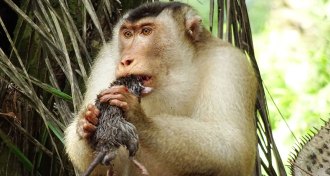 Animals
AnimalsMalaysia’s pig-tail macaques eat rats, head first
Pig-tail macaques are seen as a menace on Malaysian palm oil plantations, but may be helping to reduce rodent populations.
By Yao-Hua Law -
 Particle Physics
Particle Physics50 years ago, neutrinos ghosted scientists
In the last half-century, neutrino detectors have spotted particles cast out by the sun, supernova 1987A and a supermassive black hole.
-
 Life
LifeThe right mix of gut microbes relieves autism symptoms in the long run
Replacing missing gut microbes improves autism symptoms in children even two years later.
-
 Archaeology
ArchaeologyÖtzi loaded up on fatty food before he died
A new analysis provides a complete picture of what was in Ötzi the Iceman’s stomach when he died.
-
 Particle Physics
Particle PhysicsA high-energy neutrino has been traced to its galactic birthplace
The high-energy particle was born in a blazar 4 billion light-years away, scientists report.
-
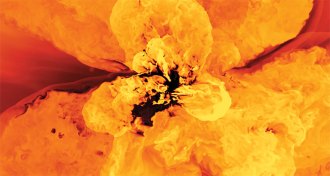 Astronomy
AstronomyThe ecosystem that controls a galaxy’s future is coming into focus
An invisible cloak called the circumgalactic medium controls a galaxy’s life and death.
-
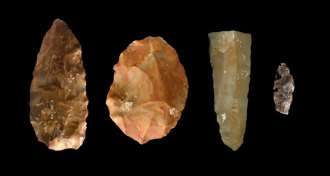 Archaeology
ArchaeologyTexas toolmakers add to the debate over who the first Americans were
Stone toolmakers inhabited Texas more than 16,000 years ago, before Clovis hunters arrived.
By Bruce Bower -
 Health & Medicine
Health & MedicineCancer cells engineered with CRISPR slay their own kin
Scientists can program the stealth cells to die before creating new tumors.